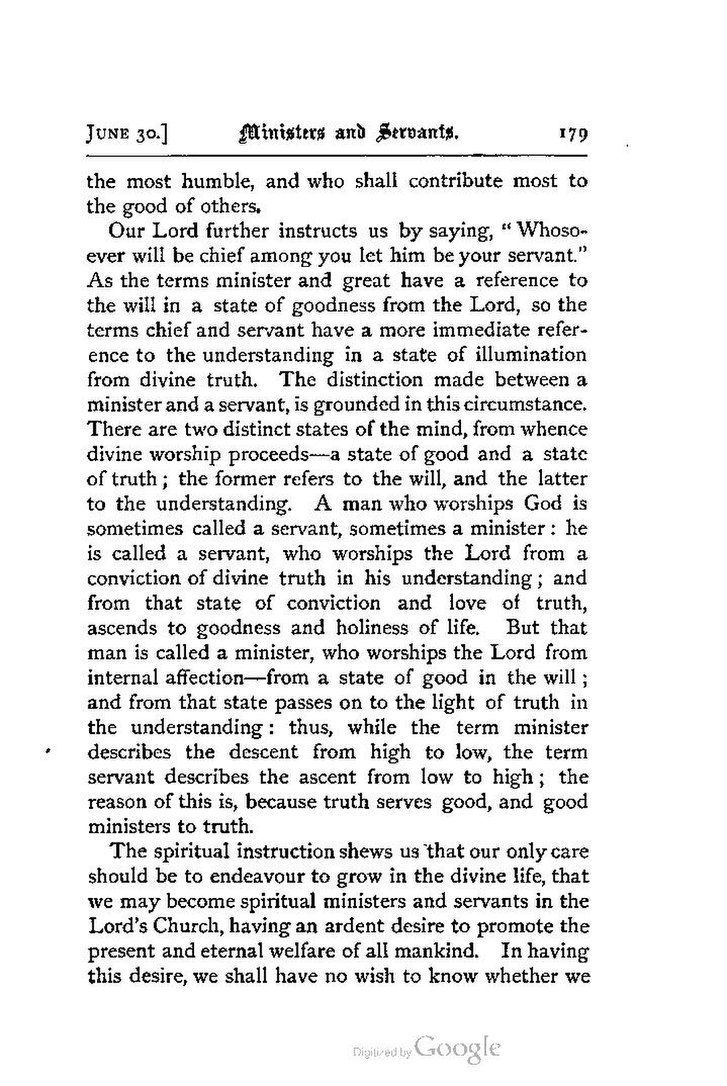the most humble, and who shall contribute most to the good of others.
Our Lord further instructs us by saying, "Whosoever will be chief among you let him be your servant." As the terms minister and great have a reference to the will in a state of goodness from the Lord, so the terms chief and servant have a more immediate reference to the understanding in a state of illumination from divine truth. The distinction made between a minister and a servant, is grounded in this circumstance. There are two distinct states of the mind, from whence divine worship proceeds—a state of good and a state of truth; the former refers to the will, and the latter to the understanding. A man who worships God is sometimes called a servant, sometimes a minister: he is called a servant, who worships the Lord from a conviction of divine truth in his understanding; and from that state of conviction and love of truth, ascends to goodness and holiness of life. But that man is called a minister, who worships the Lord from internal affection—from a state of good in the will; and from that state passes on to the light of truth in the understanding: thus, while the term minister describes the descent from high to low, the term servant describes the ascent from low to high; the reason of this is, because truth serves good, and good ministers to truth.
The spiritual instruction shews us that our only care should be to endeavour to grow in the divine life, that we may become spiritual ministers and servants in the Lord's Church, having an ardent desire to promote the present and eternal welfare of all mankind. In having this desire, we shall have no wish to know whether we
